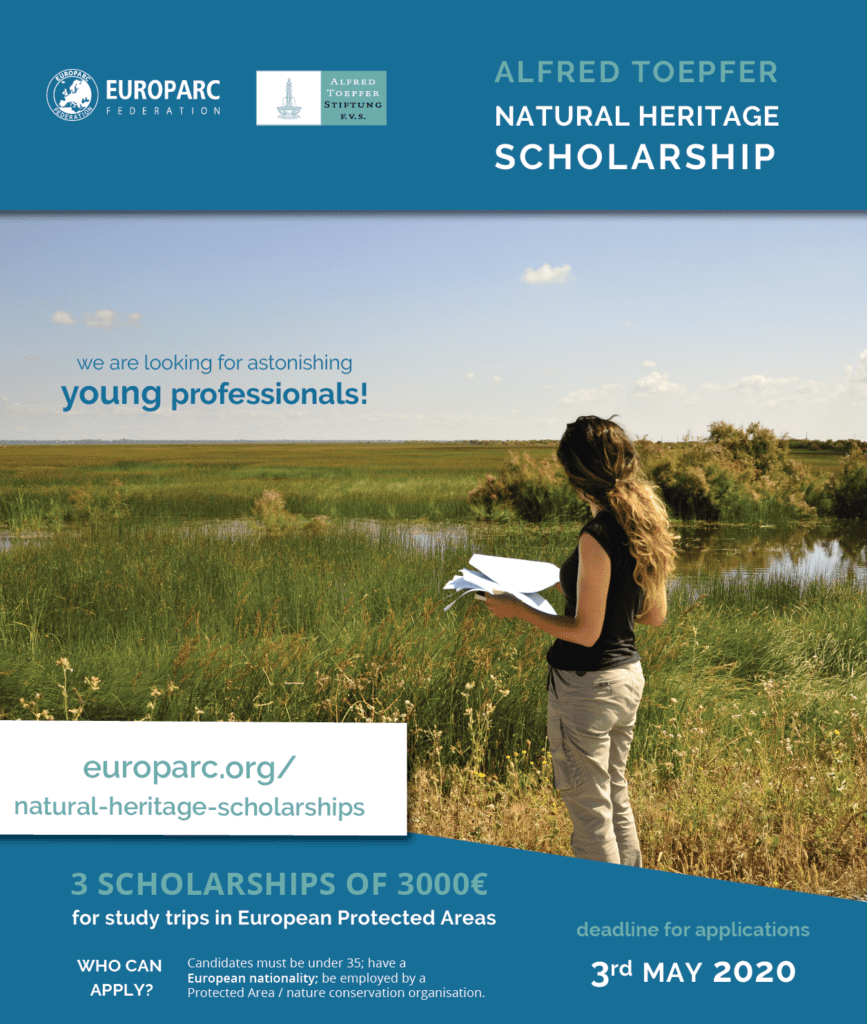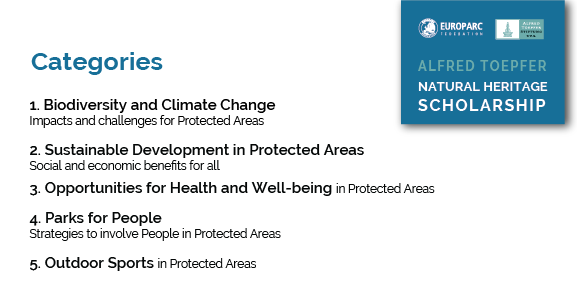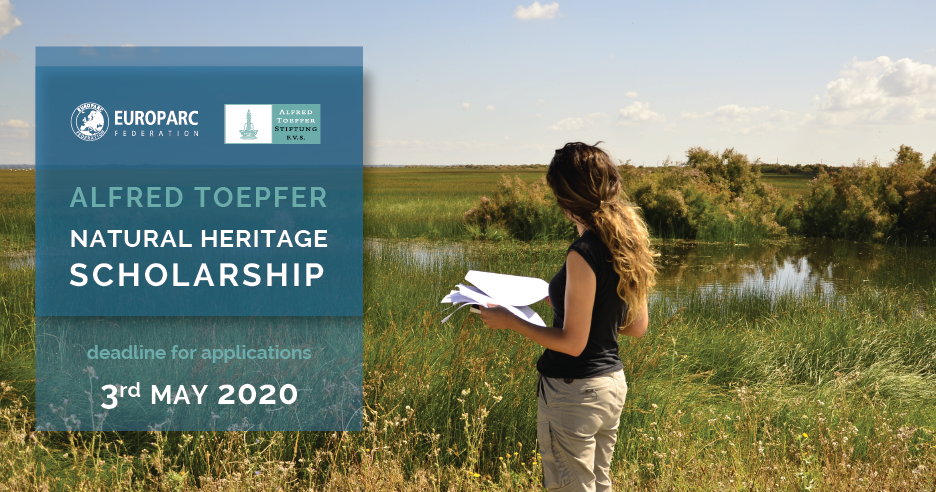Spring School “Natura 2000 in practice”: applications are open!
As part of the LIFE e-Natura2000.edu project, project partners TESAF (The Department of Land, Environment, Agriculture and Forestry of the University of Padova) and EUROPARC are organising a unique Spring School, “Natura 2000 in practice”.
Apply today for the Spring School “Natura 2000 in practice”
- Dates: 06-10 April
- Main Avenue: Legnaro, Padova (Italy)
- Field trips to Euganean Hills and Bosco Nordio
- Applications due by 14 February 2020
- participation is free and travel costs covered
You might be one of the 20 professionals from across Europe that will have the opportunity to attend the “Natura 2000 in practice” Spring School. Your participation will help you to develop the competencies and acquire the information you need to work effectively in Natura 2000. You will increase your knowledge about Natura 2000 and build your capacity for your work now and in the future.
The school is co-funded by LIFEedu and the University of Padova Summer and Winter School grant. Costs of participation will be covered up to a maximum of €650 for travel and accommodation to attend the full 5 days of the school. Dinners, lunches and materials during the event will be covered separately.
The lectures will have an interdisciplinary approach, during which active participation will be favoured through discussions and facilitated group-work. Attendees will be able to learn different innovative approaches to tackle the common issues in the management and planning of Natura 2000 sites.
What will you learn?
The main topics include:
– Ecological indicators and conservation measures: with a focus on different approaches towards data and information used at site level to achieve a good conservation status of habitats and species.
– Assessment of habitats types and species: with a focus on the requirements linked to article 17 of the Habitats Directive and the tools and approaches that could be used to achieve the Natura 2000 goals (e.g. setting Favourable Reference Values).
– Pressures and threats: with a focus on identifying impacts to habitats, species and sites and using these to prioritise management.
– Monitoring and restoration: with a focus on fundamental aspects of monitoring terrestrial and freshwater habitats, on the roles of remote sensing and new technologies in nature conservation and on the main aspects when carrying out restoration actions.
– Participating to Natura 2000: with a focus on tools and challenges in using participatory models, meeting local actors, and understanding their perspective.
Who are the lecturers?
Tommaso Sitzia, Thomas Campagnaro, Vito Emanuele Cambria, Riccardo Da Re (University of Padova), Neil McIntosh (EUROPARC), Diego García Ventura (Fungobe), Alina Ionita (ProPark), Clive Hurford (Serapias ecological monitoring consultancy), and Douglas Evans (environmental consultant, retired from the European Topic Centre on Biological Diversity).
How will it be organised?
Outside the classroom…
Two site visits will be organised to the Euganean Hills (site managed by Ente Parco Colli Euganei) and Bosco Nordio (site managed by Veneto Agricoltura) Natura 2000 sites. The context of these two sites includes semi-natural habitats, agricultural and industrial developments, community settlements, and tourism services. This makes for a useful case for the management of Natura 2000 sites. The field visits will function also as a “hands-on” management solutions and will enable attendees to share their experiences and concerns.
At the end of the Spring School, you can expect to be awarded a certificate of participation. Participants are expected to attend all the 5 days. At the end of the Spring School participants will complete an evaluation questionnaire related to the Spring School attendance and will carry out a short final exam to assess learning outcomes.
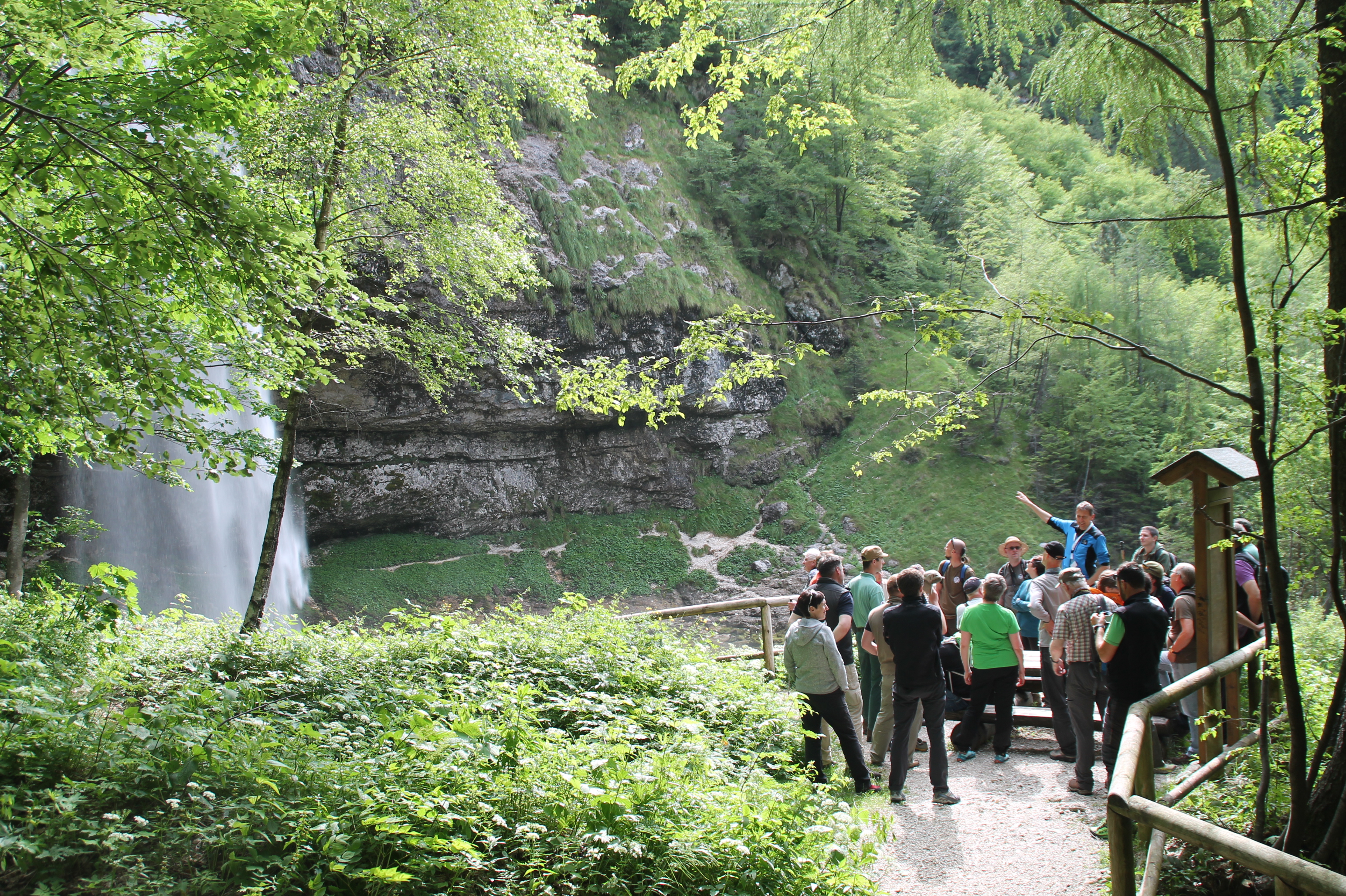
Field trip in Prealpi Giulie Nature Park (IT) 2017 – TransParcNet Meeting in the Julian Alps Transboundary Ecoregion
Who should apply?
We are looking for people keen to learn about Natura 2000! Our main target are individuals actively working in a Natura 2000 site or for Natura 2000 in some capacity. Whether you work alone or as part of a team, whether you are a Natura 2000 technician, specialist ecologist, ranger or are engaged more in outreach and interpretation, we will welcome applications from men and women of all ages and backgrounds – for example:
- Managers who are working in a Natura 2000 site, either for governmental or non-governmental organisations
- People working in Protected Areas (e.g. national, regional or natural parks) which also include Natura 2000 sites
- Rangers who are working in a Natura 2000 site
- People who work for a local authority or public administration dealing with Natura 2000 sites
- People engaged in volunteer and/ or visitor management in Natura 2000 sites
- People working with local communities in or around a Natura 2000 site
- Providers of information about Natura 2000 (e.g. Communication or Interpretation about Natura 2000 site features)
- Trainees, recently appointed to work on a Natura 2000 site
- Private landowners of a Natura 2000 site (e.g. farmer or forester)
This is an international project so we need people with good standards of English. Our aim is to ensure that we have a representative sample of different types of Natura 2000 managers from different backgrounds – we need a good mix of specialists, rangers, private landowners etc., as well as ages and gender.
Sounds great! What about the costs?
Travel and accommodation costs for participation in the period of the Spring School (i.e. up to a maximum of 5 nights) will be covered by the project up to a maximum of €650 per person. This includes travel, which must be by the most economical means possible and should not exceed €250 per person.
Personal expenses are not eligible for reimbursement. Reimbursement will be based on a signed personal claim form.
IN ALL CASES, reimbursement can only be made when actual costs are evidenced with original receipts and proof of travel documents. Dinners, lunches and materials during the event will be covered separately. The Spring School is also co-financed under the University of Padova International Summer and Winter School (ISWS) programme.
I want to apply!
Applications are due on Friday, 14th February 2020. By mid-February 2020, you will know if you have been selected!
>>>> Apply here <<<<
Subject to demand, there may be one other additional Spring School. We’ll keep you posted!
In the case you have any questions please contact thomas.campagnaro @ unipd.it.
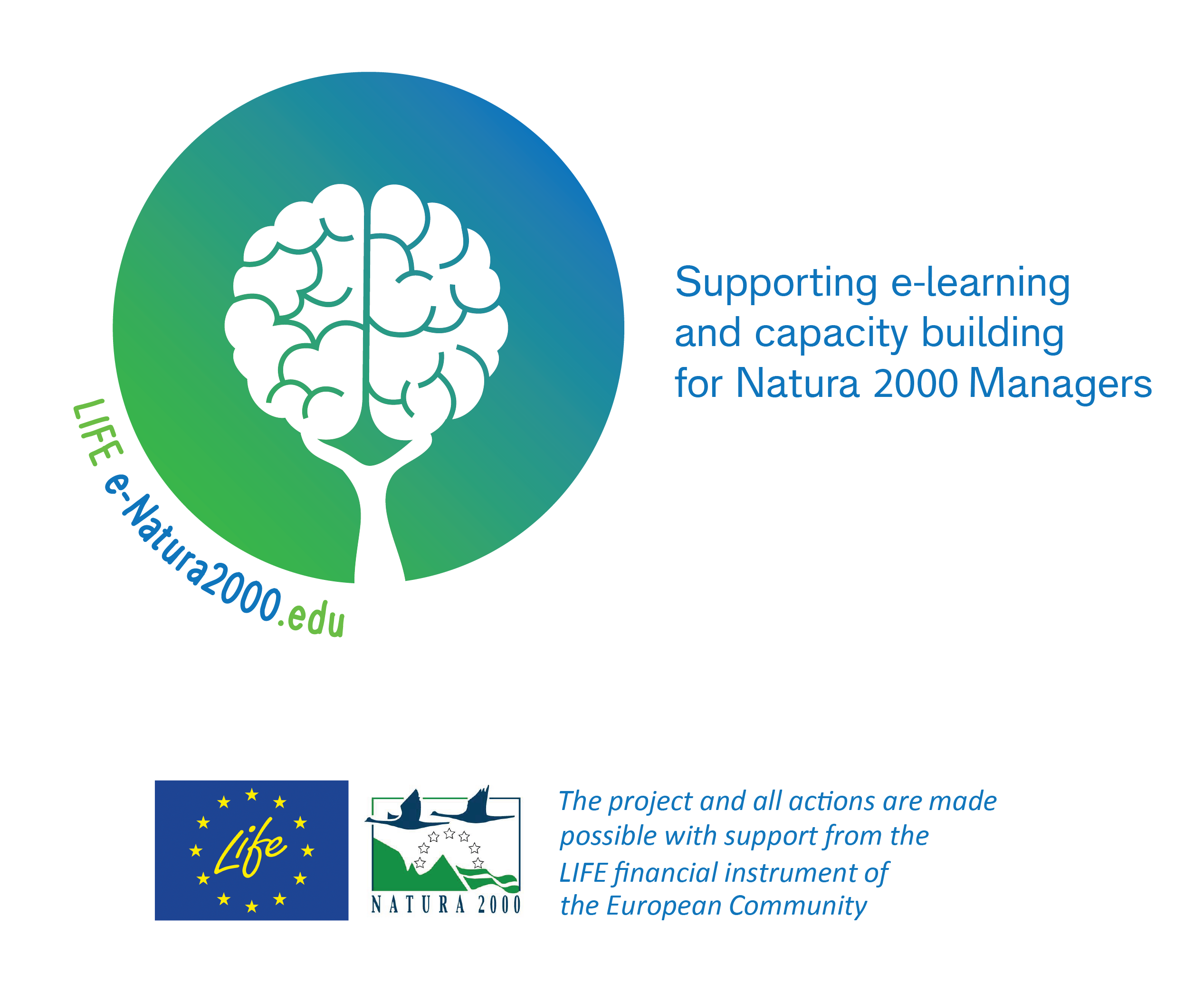
Invitation to tender: Video production for Life eNatura2000.edu
This call for tenders is issued within the scope of the LIFE Preparatory Project, ‘LIFE e-Natura2000: supporting e-learning and capacity building for Natura 2000 managers’. For the purposes of this tender, acting on behalf of the project partners, the contracting authority is The EUROPARC Federation.
Procurement – External Service Contract for production of videos to promote the project
The contracting authority is looking to engage an experienced external service provider to:
- Design, produce and release a minimum of two short videos, between 30 seconds and 2 minutes in length.
- Produce the videos in a format suitable for use to promote the project, primarily via social media.
- Ensure that the videos bear all compulsory content and credits.
- Hand-over to the contracting authority all design materials and a complete specification of the technical production process.
- Organise and run a comprehensive hand-over to the contracting authority’s communication staff in Regensburg, Germany.
- Ensure that the final approved versions of videos can be shared with the other project partners for their use.
- Provide project partners with advice – a short guidance – about how the videos can best be disseminated to generate maximum viewing figures.
The videos must be innovative, of highest quality and visually attractive. They should contain attractive images, which are free from any copyright restrictions on their use, and animated short, informative texts.
The indicative budget for this external assistance contract is €6,000 maximum, inclusive of VAT. As a minimum, all bidders must have demonstrable experience of working with EU based NGOs or institutions.
Ultimately, those bidding for this contract, must evidence how their expertise will be applied within the scope of this contract and benefit the EUROPARC Federation in the prmotion and delivery of this project.
The contract period runs for (up to) one month (maximum) from the date of the contract award.
Previous experience of delivering similar work as an external service contractor is required.
The issue date for the invitation to tender is 3 February 2020 with bids due to be received by 12.00 noon by or before 12 February 2020. A contract will be awarded by 14 February.
for young professionals: the Alfred Toepfer Natural Heritage Scholarship 2020
Investing in young professionals working for Protected Areas
EUROPARC strongly believes that young people have a vital role to play in caring for Europe’s natural heritage. Like everything else, the future of Protected Areas relies on the young generation taking an active and informed role. Each year the EUROPARC Federation, with support from the Alfred Toepfer Stiftung F.V.S., awards three Alfred Toepfer Natural Heritage Scholarships to promising young conservationists, who are committed to working for the benefit of Protected Areas. The aim of the scholarships is to enhance international cooperation and to advance the quality, innovation and European dimension of Protected Area management.
Each scholarship is worth €3.000 and enables successful applicants to undertake a study visit on a particular theme to one or more Protected Areas in European countries.
While there are many opportunities for students to get scholarships to improve their skills abroad, there are few for those who have already entered the working world. Hence, the aim of this scholarship is to give the opportunity to those young professionals that have chosen to develop a career in protected areas, to improve their skills and learn from other professionals by carrying out study visits to protected areas across Europe.
The Alfred Toepfer Natural Heritage Scholarship 2020
Deadline for applications 3rd May 2020, 3 pm CET
The Alfred Toepfer Natural Heritage Scholarship is a great opportunity for young professionals who have chosen to develop a career to our natural and cultural heritage. The winners of the Scholarship will have the chance to improve their skills and learn from other professionals, by carrying out study visits in European Protected Areas. The call is open to all young professionals working in topics related to Protected Areas in Europe. Conditions to apply:
- candidates must be under 35
- have a European nationality
- be employed by a Protected Area or nature conservation organisation or be employed by an organisation that develops its work in a Protected Area
Applications for study visits to prepare master or doctoral thesis will not be considered.
Download the Guidelines for 2020, FAQs and an overview of the application form 2020:
ATS FAQs ATS Guidelines ATS Application Form example
>>>>> online application form <<<<<
5 steps to win your Scholarship:
1) Choose one category
The application must address one of the following selected themes faced by Protected Area Management:
2) Apply
To apply, candidates must submit:
- Online application form– that includes your Curriculum vitae, your motivation letter, the proposed programme of your study visit, and contact details of protected areas you want to visit
- Proof of employment if pre-selected
Applications are due on 3rd May 2020 (3 pm CET) and must be submitted online. Download the complete Guidelines and access the online application form.
3) Be awarded at EUROPARC Conference 2020
The winners of the Alfred Toepfer Natural Heritage Scholarship will be awarded in Austria, at EUROPARC Conference 2020.
The Alfred Toepfer Stiftung E.V.S will generously cover your travel expenses and participation at Europe’s biggest gathering of Protected Areas professionals! This year, especially, we will be looking at the way we communicate... How are we speaking to our audiences? Are we also looking from a human perspective to the many challenges our Protected Areas face? Can we use technology to better reach out people’s understanding and encourage respect for nature? so there will be plenty of opportunities for you to learn, network and share experience on this exciting topic.
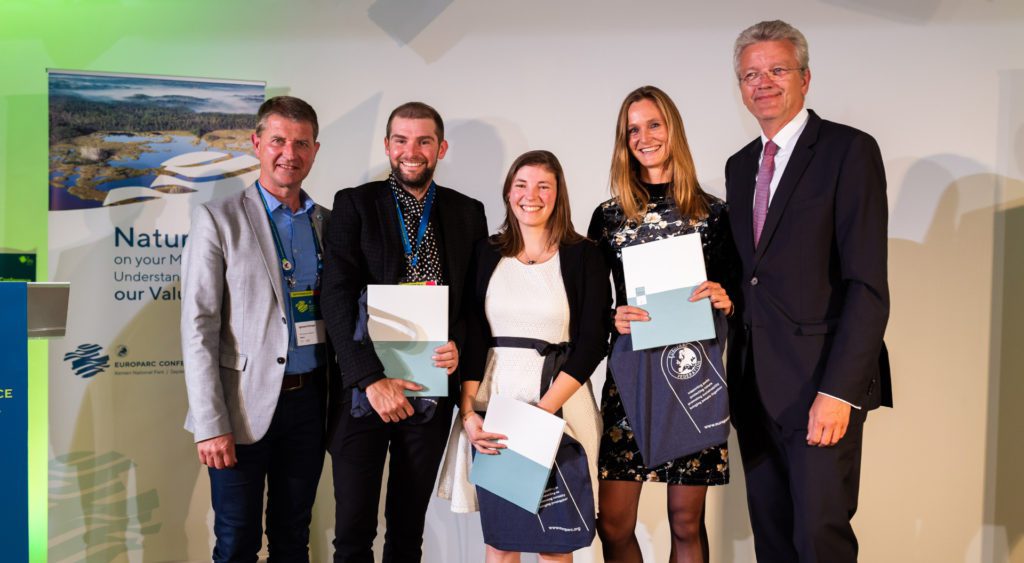
The winner of the Alfred Toepfer Natural Heritage Scholarship in Jurmala, Latvia – EUROPARC Conference 2019
4) Travel and Learn
The scholarship covers your travel costs to one or more protected areas in Europe. Visiting different countries enables you to gather new perspectives and deepen your subject of study. Check out the example of Baiba Ralle or Csaba Bereczki, who visited different protected areas in several countries, or Eduardo Batista who made a deep study in just one protected area.
You will find all the reports since 2007 in our library and on this page you can learn more about the past scholarship winners.
5) Share your results
After the trip, the scholars are expected to present the Federation their findings in a report and a short film. These reports are made available to EUROPARC members, as they are full of interesting facts on observation and solutions to common Protected Area management issues. Here’s some inspiration from Agné and Tymur!
for more information or questions, please contact Teresa Pastor at teresa.pastor @ europarc.org.
Sustainable Development & Management of Protected Areas by Agnė Jasinavičiūtė
South Downs National Park (UK) by Agnė Jasinavičiūtė
Every year, the Alfred Toepfer Natural Heritage Scholarship supports the work of young conservationists in protected areas across Europe. Agnė was one of the winners of the Scholarship in 2018, and in 2019 organised a very interesting road trip across many parks in the UK, this is her story and findings.
Meanwhile, the call for applications 2020 is now open! See here how you can be the next winner of the Scholarship.
Article issued by Agnė Jasinavičiūtė
Sustainable Development and Management of Protected Areas: Good practise from Scotland and England
Most of Europe’s protected areas are unique landscapes that make up the character and richness of their regions. Protected areas, far from only being important for nature conservation, are increasingly recognised as key tools in achieving a number of Sustainable Development Goals (SDGs).
To preserve the landscape values of protected areas it is necessary to:
- strengthen the implementation of landscape protection principles in spatial planning, at municipal and local level
- apply methodological justification in landscape management projects
- promote principles of rational use.
The European Landscape Convention stresses that great importance in the conservation of the diversity of landscape is attributed to the integration of provisions on landscape protection, use, management and planning. Moreover, public participation is one of the key factors that determine the successful implementation of the national landscape policy. Protected areas only work when they are supported by nearby communities.
Why a study trip in the United Kingdom?
The aim of the study trips was to gain more experience and knowledge about landscape management of protected areas (via spatial planning, communication with local communities), to collect new tools and best practices better for Environmental impact assessment (EIA) and strategic environmental assessment (SEA) in order to improve process of landscape management in SSPA and Lithuanian protected areas.
My interests are focused on landscape management, so it was clear to me that I had to visit the United Kingdom, which has some of the oldest and deepest traditions of landscape protection. Moreover, our system of protected areas in Lithuania is very similar to the United Kingdom.
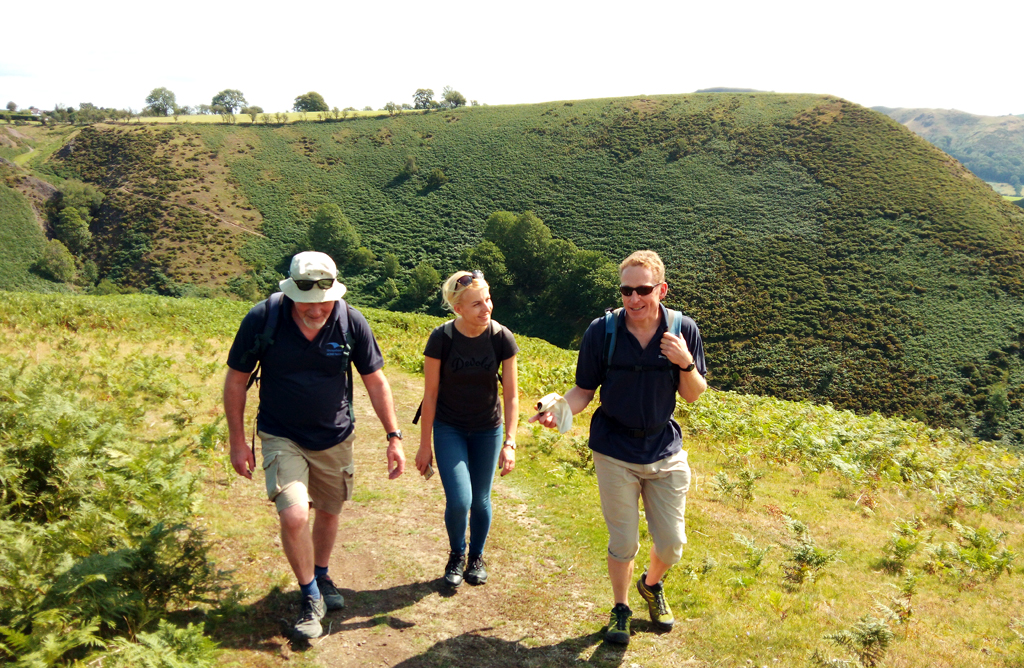
Long Mynd walk in the Shropshire Hills AONB, Agne Jasinaviciute with Nigel McDonald and with Phil Holden (2019)
In order to reach the aim and objective of this study visit, several activities were implemented:
- Analysis of literature on planned visits to protected areas;
- Visit of the protected areas’ headquarters and discuss with them about the management, operational plans of protected areas, monitoring activities, decision making;
- Field trip on chosen areas – Cairngorms National Park, Loch Lomond & The Trossachs National Park in Scotland, Shropshire Hills AONB, South Downs National park and High Weald AONB in England;
- Presentations about landscape protection and protected areas in Lithuania.
EFFECTIVE TOOLS for landscape protection in the UK
Most of the United Kingdom’s territory is covered by mountains and high-altitude hills, and so it is a good condition for the concentration of national parks. There are several National parks in the country. Also, a large part of the area is covered by Areas of Outstanding Natural Beauty (AONBs) which ensure the protection of scenic landscapes.
Protected areas, especially national parks are large areas of land, including towns and villages, which means that lots of people and organisations help to look after them. Each National Park in the United Kingdom is looked after by an organisation called a national park authority, which includes members, staff and volunteers. Every National Park has a National Park Management Plan (e.g. The Cairngorms National Park Partnership Plan). This document sets out a five-year plan for the National Park.
For Areas of Outstanding Natural Beauty (AONBs), they are coordinated by a Partnership in accordance with the priorities, policies and objectives set out in the statutory AONB Management Plan (e.g. Shropshire Hills AONB Management Plan).
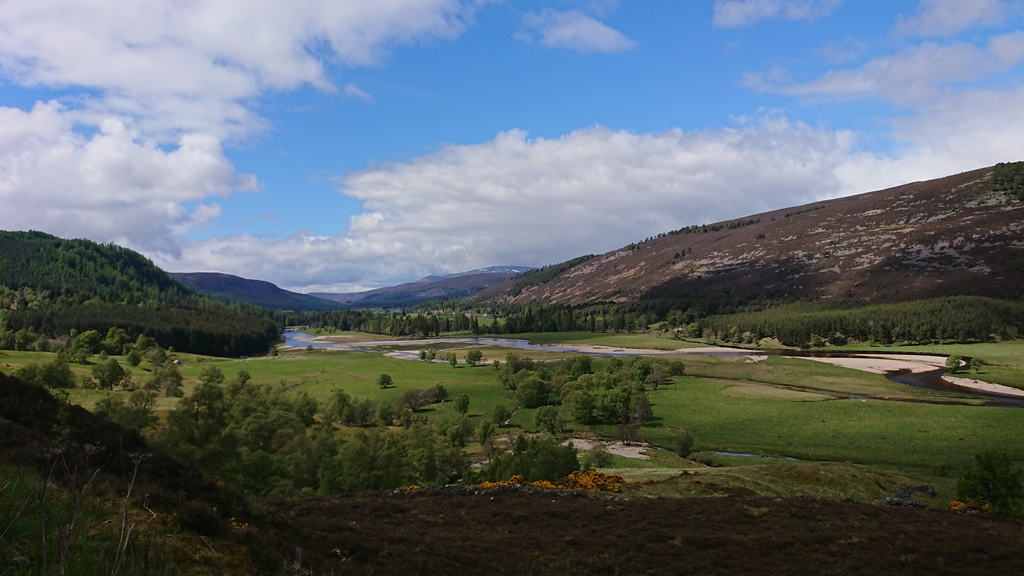
River Dee valley, Braemar in the Cairngorms National Park (UK) by Agne Jasinaviciute
PROTECTED LANDSCAPES: Connecting different needs
Local communities, landowners and other organisations are asked for their opinions to draw and help to achieve the plan. There are a growing number of private initiatives that want to contribute to the protection of these areas. One of the best examples I came across was a private initiative by WildLand Limited. The company’s aim is to restore peatlands, wetlands and rivers and at the same time build support and understanding locally, nationally and internationally in Glenfeshie, in the Cairngorms National Park.
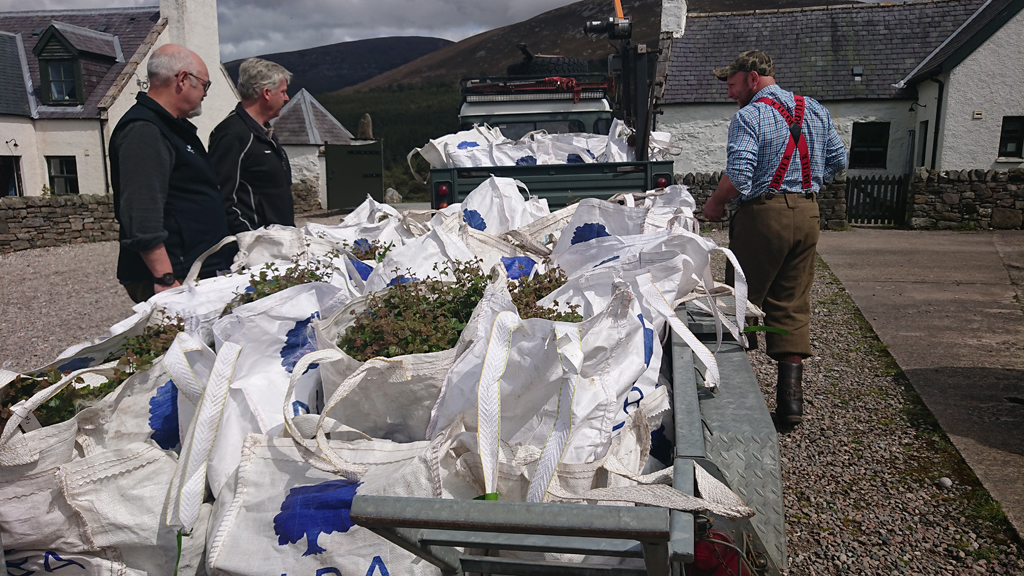
Birch seedlings are prepared for replanting in Glenfeshie, in the Cairngorms National Park. At the same time, the specialists are regulating the deer population by Agne Jasinaviciute
The main challenge in protected areas is to conserve landscape and biodiversity while providing the basis for the social and economic development of local residents. In order to reduce the possible impacts of new development projects (wind turbines, iron power stations etc.) inside or outside the protected areas, specialists of protected areas must have very convenient and valid evaluation tools e.g. Cairngorms Landscape Toolkit.
Also, Authorities and Partnerships are taking consultations and trying to reduce the possible impacts of new development projects inside or outside the protected areas. Other conservation charities, like The National Trust for Scotland and The National Trust, also develop a wide range of tools and project to protect natural and cultural heritage for present and future generations.
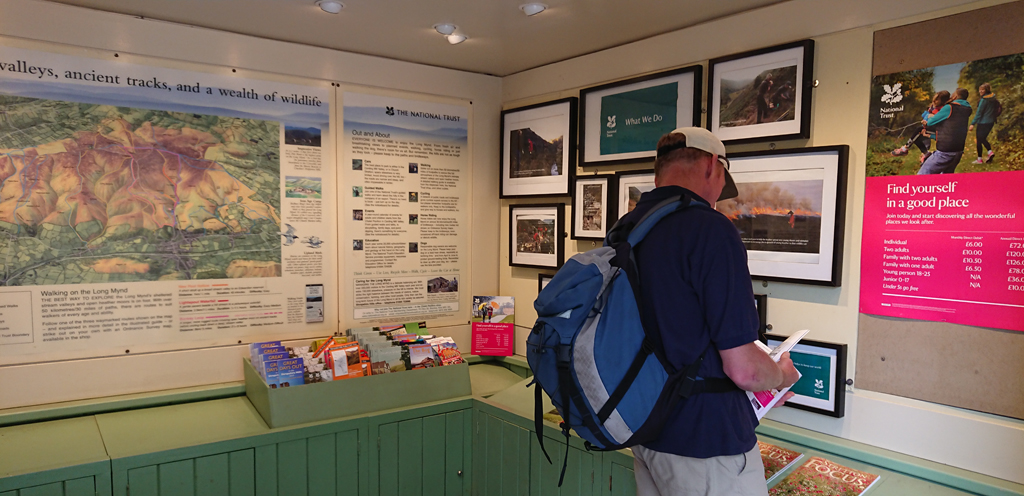
Informational kiosk implemented by the National Trust at Carding Mill Valley in the Shropshire Hills AONB, byt
MAIN OUTCOMES
My study trips inspired by the Alfred Toepfer Natural Heritage Scholarship and the EUROPARC Federation gave me new ideas of sustainable development and Management of Protected Areas:
- The challenge we all face is preserving the landscape for future generations. So, it is very important to have the right tools to make your decisions.
- Man is an integral part of the landscape. It is important that local communities and visitors value protected areas.
- Collaboration between local communities and sectoral policy makers (e.g. agriculture, environment, tourism) is a pre-condition for successful management
- Nature conservation initiatives often face often lack of funding because there are different priorities. We need to demonstrate both the existing and future benefits of the protected areas, and what they can provide to society. We need to connect protected areas with people across the country.
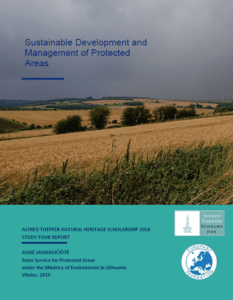 I wish that one day there will be a network “Landscape 2000” – the largest coordinated network of protected areas in the world which could offer a heaven to Europe’s most valuable landscapes. At present, too little attention is paid to protecting the landscape as a home for the nation.
I wish that one day there will be a network “Landscape 2000” – the largest coordinated network of protected areas in the world which could offer a heaven to Europe’s most valuable landscapes. At present, too little attention is paid to protecting the landscape as a home for the nation.
You can be the next winner of the Alfred Toepfer Natural Heritage Scholarship…! In 2020 we will offer 3 scholarships of 3000€ to undertake study visits to European Protected Areas. Click on the image to find out how…
